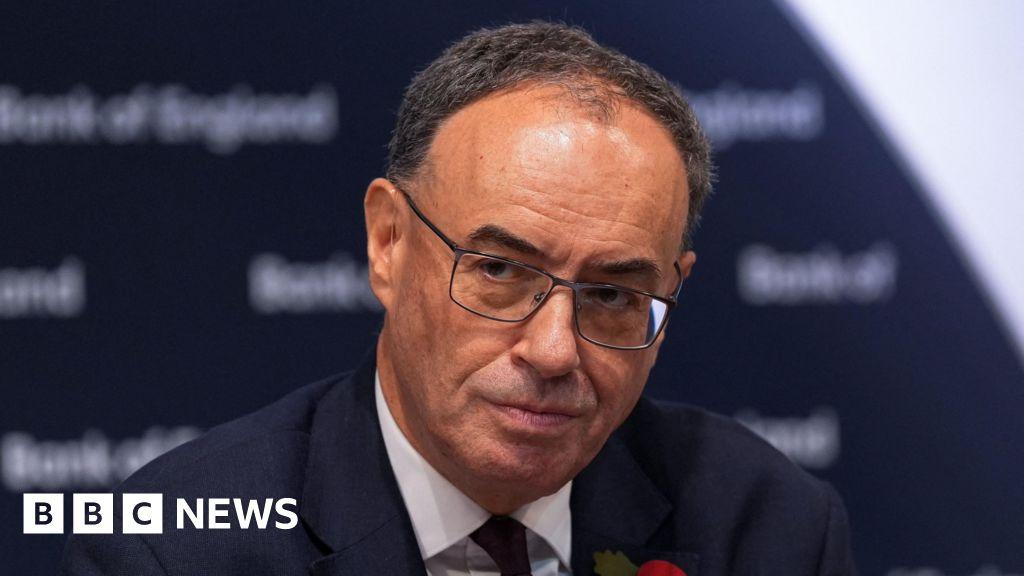ECB Warns of AI Stock Bubble and Financial Stability Risks
3 Sources
3 Sources
[1]
ECB warns of 'bubble' in AI stocks as funds deplete cash buffers
FRANKFURT (Reuters) - The European Central Bank warned on Wednesday about a "bubble" in stocks related to artificial intelligence (AI), which could burst abruptly if investors' rosy expectations are not met. The warning came as part of the ECB's twice-yearly Financial Stability Review, a laundry list of risks ranging from wars and tariffs to cracks in the plumbing of the banking system. The central bank for the 20 countries that share the euro noted the stock market, particularly in the United States, had become increasingly dependent on a handful of companies perceived as the beneficiaries of the AI boom. "This concentration among a few large firms raises concerns over the possibility of an AI-related asset price bubble," the ECB said. "Also, in a context of deeply integrated global equity markets, it points to the risk of adverse global spillovers, should earnings expectations for these firms be disappointed." The ECB noted investors were demanding a low premium to own shares and bonds while funds had cut their cash buffers. "Given relatively low liquid asset holdings and significant liquidity mismatches in some types of open-ended investment funds, cash shortages could result in forced asset sales that could amplify downward asset price adjustments," the ECB said. Among other risks, the ECB flagged the euro area was vulnerable to more trade fragmentation - a key source of concerns for policymakers and investors since Donald Trump won the U.S. Presidential election earlier this month. The President-elect had made tariffs a key element of his pitch to voters during the campaign and several ECB policymakers have said these measures, if implemented, would hurt growth in the euro area. The ECB also noted euro area governments - particularly Italy and France - would be borrowing at much higher interest rates over the coming decade, strengthening the need for prudent fiscal policies. (Reporting By Francesco Canepa; Editing by Alex Richardson)
[2]
ECB sounds warning over prospect of 'bubble' in AI stocks By Investing.com
Investing.com -- Risks of a potential AI-related asset price bubble in equity markets remain despite recent corrections, the European Central Bank (ECB) warned in a recent report. In its latest Financial Stability Review, the ECB highlighted the increasing concentration of equity market capitalization and earnings among a small group of technology firms, primarily in the United States, many of which are at the forefront of the ongoing AI boom. The ECB noted that this concentration, often referred to as the dominance of the "Magnificent 7" -- companies such as Alphabet (NASDAQ:GOOGL), Apple (NASDAQ:AAPL), and Microsoft (NASDAQ:MSFT) -- has created vulnerabilities in global equity markets. "This concentration among a few large firms raises concerns over the possibility of an AI-related asset price bubble," the report notes. Global interconnectedness adds another layer of risk. The ECB emphasized that "in a context of deeply integrated global equity markets," any disappointment in the earnings of these firms could trigger adverse spillovers across asset classes and geographies. The rise of AI has led to soaring valuations, but the ECB cautioned that the market could be vulnerable to unexpected changes in sentiment. "There is a greater likelihood that negative surprises - including sharply deteriorating economic growth prospects, sudden changes in monetary policy expectations or further escalation of ongoing geopolitical conflicts - could trigger abrupt shifts in investor sentiment, resulting in spillovers across asset classes," the report says. With liquidity in equity markets remaining heavily concentrated within a small group of companies, risks of stock dispersion are greater, the ECB explains. This combination of elevated valuations and extreme reliance on a few dominant stocks raises the risk of individual shocks cascading into systemic events. Market sensitivity to these companies now rivals that of major macroeconomic developments. "Valuations and risk premia are therefore vulnerable to a shift in risk appetite," the ECB warns. Sudden spikes in market volatility could further lead to forced asset sales by euro area investment funds, amplifying stress in corporate bond markets. That risk is exacerbated by the sizable role these funds play in the euro area bond market. For non-bank entities, the growing concentration of equity investments in US technology stocks significantly increases exposure to potential "revaluation shocks," the ECB adds.
[3]
ECB Warns of Financial Stability Threats in Higher Trade Tariffs, Possible AI Bubble
The prospect of higher trade tariffs increases the risk of rare but damaging shocks to the global economy and threatens the stability of the financial system, the European Central Bank warned Wednesday. In a twice-yearly report, the ECB also said that the concentration of investments in "a handful of firms" suggests an asset-price bubble linked to the development of artificial intelligence might be inflating, threatening the wider financial system should those firms experience unexpected setbacks. U.S. President-elect Donald Trump said he wants to raise tariffs on imports from a wide range of countries, although the details are unclear. The ECB said that if enacted, higher barriers to trade could weaken the global financial system. "Alongside geopolitical and policy uncertainty, global trade tensions are on the rise, increasing the risk of tail events," said Luis de Guindos, the ECB's vice president. The ECB said higher tariffs could have an adverse effect on global economic growth, inflation and asset prices at a time when investors appear to have underestimated the likelihood of such setbacks. "There are signs that investors may be underestimating and under-pricing the likelihood and impact of adverse scenarios, as indicated by record low equity risk premia and relatively compressed corporate bond spreads on both sides of the Atlantic," the ECB said. The eurozone's central bank also warned that the high proportion of total equity-market market capitalization accounted for by a small number of technology companies is also a threat to the stability of the system, since disappointments in earnings or product development in one or more could have a much wider impact. "High valuations and risk concentration render financial markets susceptible to sudden, sharp adjustments, notably in equity markets," it said. "This concentration among a few large firms raises concerns over the possibility of an AI-related asset price bubble."
Share
Share
Copy Link
The European Central Bank cautions about a potential bubble in AI-related stocks and highlights risks to financial stability, including trade tensions and market concentration.

ECB Raises Alarm on AI Stock Bubble
The European Central Bank (ECB) has issued a stark warning about a potential "bubble" in stocks related to artificial intelligence (AI), as part of its twice-yearly Financial Stability Review. The central bank expressed concerns that this bubble could burst abruptly if investors' high expectations are not met, potentially triggering widespread market disruptions
1
.Market Concentration and Global Spillover Risks
The ECB highlighted the increasing concentration of equity market capitalization and earnings among a small group of technology firms, primarily in the United States. This concentration, often referred to as the dominance of the "Magnificent 7" - including companies like Alphabet, Apple, and Microsoft - has created vulnerabilities in global equity markets
2
."This concentration among a few large firms raises concerns over the possibility of an AI-related asset price bubble," the ECB stated. The bank warned that in the context of deeply integrated global equity markets, any disappointment in the earnings of these firms could trigger adverse spillovers across asset classes and geographies
1
.Liquidity Concerns and Market Vulnerabilities
The ECB noted that investors are demanding a low premium to own shares and bonds while funds have cut their cash buffers. This situation could lead to forced asset sales in the event of cash shortages, potentially amplifying downward asset price adjustments
1
.Trade Tensions and Financial Stability
In addition to AI-related concerns, the ECB warned about the impact of potential trade tensions on financial stability. The bank highlighted that the prospect of higher trade tariffs increases the risk of rare but damaging shocks to the global economy
3
.Luis de Guindos, the ECB's vice president, stated, "Alongside geopolitical and policy uncertainty, global trade tensions are on the rise, increasing the risk of tail events"
3
.Related Stories
Underestimation of Risks
The ECB expressed concern that investors may be underestimating and under-pricing the likelihood and impact of adverse scenarios. This is indicated by record low equity risk premia and relatively compressed corporate bond spreads on both sides of the Atlantic
3
.Implications for Financial Markets
The combination of elevated valuations and extreme reliance on a few dominant stocks raises the risk of individual shocks cascading into systemic events. Market sensitivity to these companies now rivals that of major macroeconomic developments. The ECB warns that valuations and risk premia are vulnerable to a shift in risk appetite
2
.These warnings from the ECB underscore the complex interplay between technological advancements, market dynamics, and global economic factors, highlighting the need for vigilance in monitoring and managing financial stability risks.
References
Summarized by
Navi
[1]
Related Stories
Bank of England warns AI bubble could trigger sharp correction as debt risks mount
03 Dec 2025•Business and Economy

Bank of England Warns of AI-Driven Market Volatility and Manipulation Risks
10 Apr 2025•Business and Economy

Investors warn AI bubble poses major economic risk as inflation fears and unsustainable spending mount
02 Jan 2026•Business and Economy

Recent Highlights
1
Pentagon threatens Anthropic with Defense Production Act over AI military use restrictions
Policy and Regulation

2
Google Gemini 3.1 Pro doubles reasoning score, beats rivals in key AI benchmarks
Technology

3
Anthropic accuses Chinese AI labs of stealing Claude through 24,000 fake accounts
Policy and Regulation





